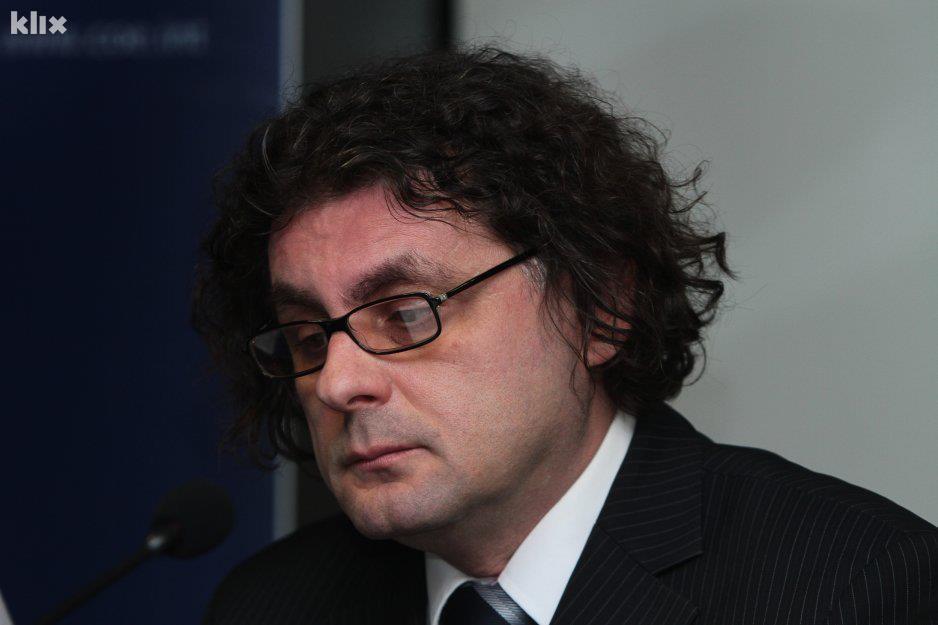Enes Osmancevic: Too many abuses are present in the communication space of the Internet. That is usually the result of the anonymous communication that allows the use of multiple identities, none of which needs to be true. These abuses are most evident through theft of identity, intellectual property, plagiarism, hate speech and incitement to violence. Despite the unprofessional journalism, there are comments from users on the Internet, discussions on various forums and blogs that are not edited in relation to the contents published. There are numerous debates about the future of the Internet, regulation of the intellectual property and identification in communication, in order to reduce the opportunities for abuse. But even these debates are often misused, hence it remains to be seen how this will end up.
CMEM: In the race for clicks and ads which aspects of violation of the ethical and professional standards in the Internet field are most worrying?
Enes Osmancevic: Most worrying are the false and misleading contents that are placed on many online media on a daily basis. It is actually sensationalism which is marketed for the sole purpose of attracting a large number of clicks. Besides this, there is also a serious violation of the basic tenets of journalism, according to which the commercial and informational content need to be separated. Nevertheless, we are witnessing that the commercial contents or advertisements, promotions and economic propaganda are presented as news on a daily basis. In addition, there is a constant concern about the inflammatory language that is served to the Internet users as a kind of spectacle and an arena for verbal war. It often turns into hate speech and incitement to violence, which in most national legislations is a crime that is sanctioned with imprisonment.
CMEM: To which extent the regulatory and self-regulatory mechanisms succeed to oppose the violation of professional and ethical standards in the online media?
Enes Osmancevic: The mechanisms for regulation are defined by the state and they are implemented by an agency that should be independent. Regulation implies sanctions – fines and even revocation of license for broadcasting. Self-regulation is based on voluntary acceptance of ethical codes, whose implementation is a responsibility of the Press Council, as is the case in Bosnia and Herzegovina. In addition, self-regulation does not have mechanisms to sanction. Its role is to protect the media from political interference and to protect the public from bad journalism. In recent years, the Press Council in Bosnia and Herzegovina annually receives more than 1,000 complaints from citizens regarding the content published in the print and online media. It suggests that the audience is more sensitized regarding the violation of ethical standards, but also in terms of the credibility of the Press Council. Also, most citizens’ complaints are resolved by mediation, by publishing a correction. The promotion of professional and ethical standards and their consistent implementation is an ongoing task, which on the one hand is an effort to professionalize the media and improve the journalistic standards and on the other hand it educates audiences and consumers and promotes media literacy and culture.
CMEM: As a member of the Press Council, what is your experience in the cases of violation of the professional and ethical standards in the online media?
Enes Osmancevic: In Bosnia and Herzegovina, in the period before the Press Council took the responsibility for self-regulation in the field of online media, there were many cases of violation of professional and ethical standards on the web portals. Some of those cases were reported and others not. As soon as the Press Council started with self-regulation of the online media, most of the portals accepted the ethical codes and agreed on self-regulation. Since then, a lot of efforts and energy were invested for promotion of the ethical standards among the editors and the journalists in the online media in Bosnia and Herzegovina, but also for education of the users, primarily in relation to their right on a complain and a correction of the incorrect reports in the online media. From one side, this has resulted with an increased sensitivity by the users of the online media to recognize the violation of the journalistic code for the print and the Internet media, but at the same time it contributed to the increase of the number of press complaints. On the other hand, we had a greater willingness from the editors of the online media to accept mediation, to publish a correction or correct content that is inaccurate or content that on any grounds constitutes a violation of the Code. The purpose of these activities is to have less drastic violation of the Code or less misunderstandings among those who produce and those who consume online media content.
CMEM: In your opinion, how can this situation be improved in the near future and what would be the most adequate approach in this direction?
Enes Osmancevic: I think that the promotion of ethical standards among journalists and editors is the best approach. It is a continuously “alive” theme for the journalistic profession and its importance and actuality will never stop. On the other hand, we need to work with the users of online media in order to advance their digital and media education. Here, besides the Press Council, universities and colleges that educate journalists, web designers, managers, teachers, professors, politicians, diplomats, lawyers and all other stakeholders in society have a very important role.
